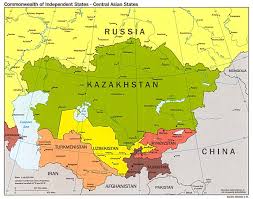 The situation in Ukraine has increased the internal tension in the CIS and will complicate the relations between its member countries, Russian political analyst Dmitry Oreshkin told Rosbalt (www.rosbalt.ru). He said that even today, such CIS member countries as Belarus and Kazakhstan, which have achieved the closest integration with Russia within the Customs Union, participate in these organizations only because "it is economically profitable for them" and "only to the extent that is profitable for them".
The situation in Ukraine has increased the internal tension in the CIS and will complicate the relations between its member countries, Russian political analyst Dmitry Oreshkin told Rosbalt (www.rosbalt.ru). He said that even today, such CIS member countries as Belarus and Kazakhstan, which have achieved the closest integration with Russia within the Customs Union, participate in these organizations only because "it is economically profitable for them" and "only to the extent that is profitable for them".
The recent events in Ukraine have caused an "unpleasant tension for the leaders of these countries — Alexander Lukashenko and Nursultan Nazarbayev — because they want to govern their territories on their own", Oreshkin said.
Ukraine has given a very bad example, the analyst thinks. "Belarus also has Russian-speaking citizens for whose protection Russia may decide to use its troops in Belarusian territory," he said.
In his words, the fact that both Belarus and Kazakhstan have not yet recognized independence of breakaway Georgian republics of South Ossetiya and Abkhazia indirectly proves that Lukashenko and Nazarbayev do not like such behavior standards.
In the meantime, Alexander Konovalov, president of Russia's Institute of Strategic Studies, does not rule out that after Ukraine, President Putin may target at Kazakhstan.
"Judging by everything, our president is cherishing a dream of gathering territories and uniting them into a Eurasian Union. We have a neighbor, Kazakhstan, which is the main country of the Eurasian Union," Konovalov told Russia's Ekho Moskvy (The Echo of Moscow) radio.
"Do you remember how the borders of Kazakhstan came to existence? They were drawn by Stalin's pencil. He thought that Kazakhstan had too many Kazakhs and diluted them with originally Russian Cossack regions in the north," the expert said, pointing to the fact that the northern regions of Kazakhstan have a large number of Russian-speaking citizens.
ALMATY (TCA)




